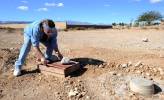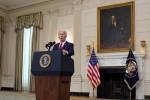Surrendering our franchise to directly elect our judges
"I know no safe depositary of the ultimate powers of the society but the people themselves; and if we think them not enlightened enough to exercise their control with a wholesome discretion, the remedy is not to take it from them, but to inform their discretion by education. This is the true corrective of abuses of constitutional power."
-- Thomas Jefferson to William C. Jarvis, 1820
Sometimes I suspect our politicians and bureaucrats are prone to attack a gnat of a problem with an anvil of a solution.
Question 1 on the November ballot asks voters to surrender their franchise to directly elect state Supreme Court justices and District Court judges. Instead, the Nevada Constitution would be amended to allow the governor to appoint such judges from a list of three qualified attorneys nominated by a judicial selection commission.
The amendment would set up another panel to evaluate judicial performance in office. This evaluation would be made public in the weeks before an election, at which the voters would choose whether to retain or turn out a judge. Retention would require 55 percent approval.
The state already uses selection panels to recommend judicial candidates to the governor when there is a mid-term opening on a court. They've recently opened their meetings to the public. I sat in on one and found it very professional, thorough and practical.
As for evaluation, this newspaper has been doing biennial surveys of attorneys since 1992. A state-sanctioned evaluation seems just a bit insular. Too cozy.
The main problem addressed by Question 1? Voters are ill-informed about the qualifications of judicial candidates.
As part of a campaign to sell the voters on Question 1, a panel of distinguished former jurists is making the rounds with a sales spiel. One stop came Tuesday before the editorial board of the Review-Journal.
The sales team included former U.S. Supreme Court Justice Sandra Day O'Connor, former Nevada Supreme Court Justice Bill Maupin and former Arizona Supreme Court Justice Ruth McGregor. O'Connor, like McGregor, hails from Arizona, where a similar system has been in place for more than 30 years. Both praise it.
"I think Americans want and expect to have one safe place in government, and that's the court," Justice O'Connor testified before the assembled journalists, "where somebody with a legal dispute can go and have somebody deciding the issue, based on the law, who is fair, independent and qualified. And I think your best chance of getting that is with this kind of a system. And it doesn't take away people's right to vote, it postpones it for whatever time is set in the legislation, one or two years. And then the voter can receive the information about the judge, the performance record, and cast a more intelligent ballot. Do you want to keep the person on the bench? Yes or no."
She also pulled out her pocket-sized copy of the U.S. Constitution and waved it in front of us, noting that federal judges are not elected and most states did not elect judges until that darned populist President Andrew Jackson started arguing that voters should take the selection away from the elites.
She was dismissive of my argument that it is harder to bribe a million voters than one governor, even though I personally know a governor who went to prison for that.
Yes, there is a problem with voters not being well enough informed about judicial candidates, but that is partly the fault of the legal community, setting itself up as some bastion of virtuous objectivity, prohibited from sullying its robes in the mud wrestle that is electioneering.
Despite a Supreme Court ruling in the case of Republican Party of Minnesota v. White, in which the court said judicial canons limiting judges' ability to address legal and political issues violates the First Amendment, Nevada canons still prohibit judges from publicly endorsing candidates. And the candidates themselves are reluctant to address specifics lest they be dragged before some ethics panel.
If selection panels are needed to help a governor appoint and evaluation panels are needed to give voters information about whether or not to retain a judge, why not create them informally and present the information directly to the voters?
The foundation of our system of a democratic republic is one of an informed and educated citizenry, capable of self-determination.
Ungag the judges and lawyers so they can inform the voters.
I asked Justice O'Connor, if Question 1 is such a good idea, why not amend the U.S. Constitution to create such a system at the federal level?
She replied, "You can propose it."
Thomas Mitchell is editor of the Review-Journal and writes about the role of the press, the First Amendment and access to public information. He was by contacted at 383-0261 or via e-mail at tmitchell@reviewjournal.com. Read his blog at lvrj.com/blogs/mitchell.























